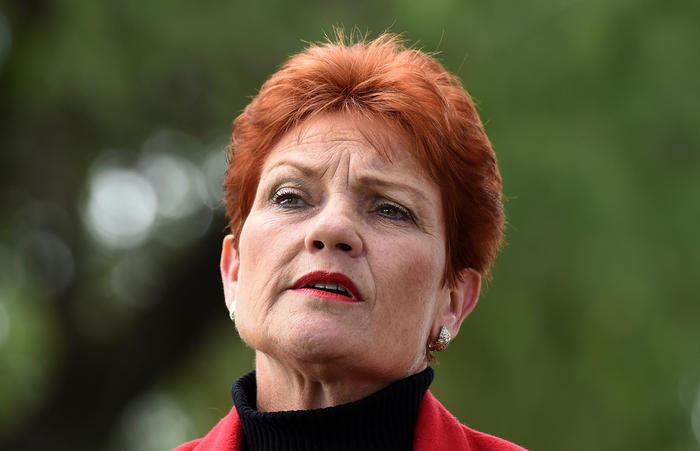Much has been written about ALP Senator Sam Dastyari and his questionable relationship with benefactors, but little on the boost the episode has given to Pauline Hanson’s One Nation.
Lack of trust in politicians to show good judgement, particularly when personal integrity may be open to question, feeds basic disenchantment, which can then be exacerbated by xenophobia.
Some have opined that it is wrong to “demonise” One Nation Senators, but there is little possibility of winning over the supporters of One Nation if you do not have credibility to begin with, and that is why Senator Dastyari’s acceptance of personal financial assistance, in the way he did, is so damaging.
Further, it is clear that facts and logic play little part in the formulation of One Nation’s policies, and may not be of great assistance in responding to them.
Senator Malcolm Roberts, who spoke a day earlier than his Supreme Leader, presented a grab-bag of grievances, which some commentators have suggested were the staple of far-right gutter-dwellers.
He did, however, claim that “Growing up, my parents taught me to respect all cultures and religions. I lived with people of all faiths – Hindus, Muslims, Buddhists, Sikhs and Christians”.
The fact Jews were not in this list is of some interest, but far more significant is his reference to Muslims as people of faith.
For the very next day his party leader had this to say: “As long as Islam is considered a religion, sharia conflicts with our secular state. Islam cannot have a significant presence in Australia if we are to live in an open, secular and cohesive society.”
Islam, she asserted, is a “so-called religion” – before demanding bans of “any new mosques or schools “and on “Australian companies paying for halal certification”.
Senator Hanson did identify some real challenges we face in this country, such as the attraction of Australians to the ranks of Daesh (ISIS), issues of integration, employment, misogyny and sustainable urban development.
Yet there was nothing in her speech to indicate her concern was with these issues in a general sense – her focus was on Islam (which she portrayed as monolithic) and Muslims (who seem to be only acceptable, to her, if they completely dissociate from Islam).
In an early part of a largely self-referential and, even for the Senate, egotistical speech, she claimed when she said in 1996 “we are in danger of being swamped by Asians” that “this was not said out of disrespect for Asians”.
As anyone who did not sleep through the last few years of the twentieth century would know, there was a huge increase in reports of Australians of east Asian appearance being harassed, bullied and threatened in our streets, as an apparent consequence of the pronouncements by the then-MP.
It beggars belief that she would not expect malevolent bigots to now feel a new sense of justification and empowerment, not just against Muslims but against anyone they feel is not properly integrating.
To return to the question of credibility, it is important that those who present themselves as public opponents of One Nation don’t contribute to that party’s success through their own behaviour.
If a person is going to oppose One Nation as racist, it hardly assists their cause if a simple internet search reveals, for example, that they are contemptuous, or worse, of Jews – or associate themselves with the overt racists of Hamas.
If a person wants to have credibility as an opponent of terrorism, it is best if they have records of consistency and also if they don’t put forward rationalisations at the same time as condemnations.
I fear that over the next few years there will be a good cause to return to these matters on numerous occasions.
For now, the Australian Senate includes a grouping which has the potential to open floodgates of hatred in a way which has no recent precedent.
It is not politics as usual – and we would be ill-advised to act as if it is.
Article is by Jeremy Jones and originally published in the Australia-Israel Review.

